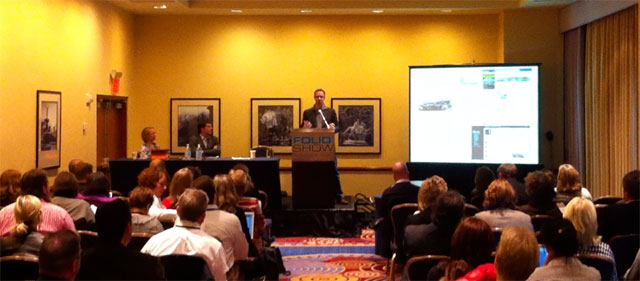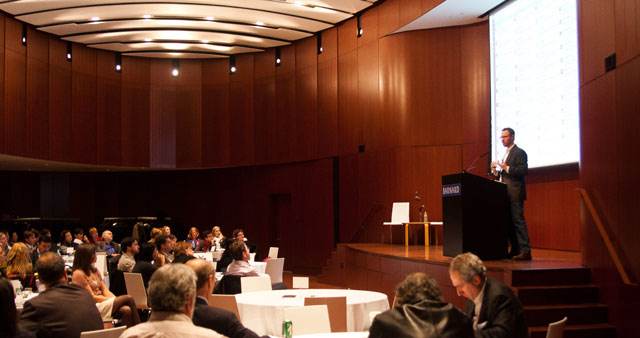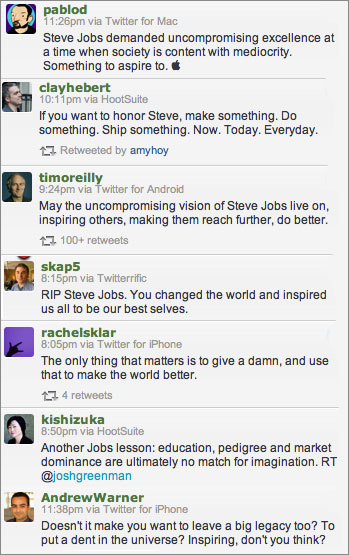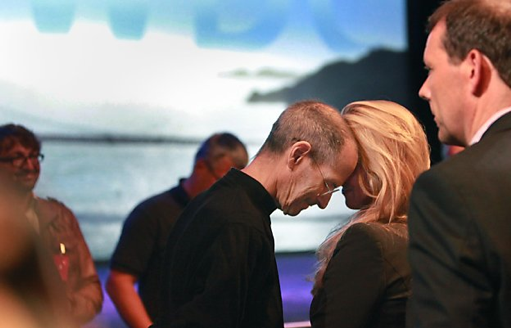What is the one thing you can do to jumpstart your career? Get a mentor.
This holds true for writers honing their craft, as it would for a mid-level manager at a publisher, as it would for a new college graduate trying to get their foot in the door in the online marketing space.
Whenever I attend a conference, there are certain words that get people’s pens moving, and fingers tapping to take notes. Words like:
- Hootsuite
- Animoto
- Tweetreach
These are tools that help us automate and more easily manage content and workflows. These are good things. I’m a big fan of them. But…
In building a successful career, it’s not what you own that matters, it’s who you know.
For many people, they get into a career rut. Meaning: they end up with a “good” position, at a “good” company, doing “good” work. I use the word “good” in quotes in order to reference the quote: “good is the enemy of great,” attributed to Voltaire and Jim Collins. That for a few years, it’s fine to be “good enough” as you get your footing in your career. But when those few years turn into a decade or two, then you often find yourself in a rut.
Going back to the conference example, it’s interesting seeing who comes up to the front of the room after a session ends to make a personal connection with a speaker or panelist. Who asks a question, shares feedback, gives their card or asks for one in return. And more importantly: who follows up a few days or weeks later. Who takes the seed of a mentoring relationship and helps it grow. That the highest value in attending a conference is not hearing the word “animoto” and discovering a new tool, but in having an insightful conversation with someone in the hallway between sessions.
Recently I wrote about how people have a greater return on investment than technology. If you are looking to break out of a rut in your career; if you are trying to do something great, but stuck in the middle of “blah,” then consider how you encourage mentoring relationships in your life.
Oftentimes these aren’t formal. You never ask: “Will you be my mentor?” No one ever says: “Luke, I am your mentor.”
What does a mentor provide, even when they aren’t aware of it? Quite a lot:
- They inspire you
- They provide real-world experience and wisdom, not just textbook advice
- They hold you accountable
- They push you past boundaries
- They believe in you
That last one is critical. Too often, those around us see us defined by existing roles. They have a very hard time imagining that you could do something radically different. But a mentor believes in your potential, not just your current identity. They see what you could be, not just how you are defined today.
How does a relationship like this work? I can only tell you how it works for me…
I am endlessly fortunate to have several people in my life that I consider mentors. These are people who are very giving of their time to help me frame what I need to do in order to grow. For the 4th quarter of this year, I am doing a deep dive into what We Grow Media needs to become in 2012 and beyond. The process has not been driven by a project plan – a spreadsheet – but rather by conversations with mentors. Those who push me, who teach me, who help me explore.
These are the steps that I took:
- Identify those who I am somehow connected to that inspire me.
- Be clear about my goals and that I could benefit from their experience.
- Setup a loose but frequent schedule of speaking together. Sometimes this is over dinner, other times virtually over Skype. 2-4 times per month seems to be a good schedule.
- Take notes when they provide insightful ideas.
- Illustrate to that person that their words/ideas/inspiration lead to direct action in your life. You aren’t spinning their wheels.
- Give back as much as possible. Sometimes this is as basic as paying for dinner; It is a heartfelt thank you; Or recommending them to others.
One last benefit of mentors: helping to manage the emotional side of growth. Inherently, growth requires you go through challenges, that you confront core issues of identity, process, and make very hard choices that have ramifications in your personal life, not just your professional life. This is not easy. I don’t think I have talked to a single writer or entrepreneur who didn’t have ups and downs in trying to grow their career – to build a legacy for their work. This is normal.
When you have a mentor to work with, they help ground you. They make you feel less like you have taken a crazy leap off a cliff into an endless hole, and more like you are building something of value. That you are on a hero’s journey.
And of course, look for opportunities to be a mentor to others. To give back to those who can most use your experience and wisdom. This week I visited a school in Harlem that I have been working with since 2003. I am an advisor to their newspaper staff, and in the photo below, you can see kids making their case as to why THEY should be Chief Editor of the paper:
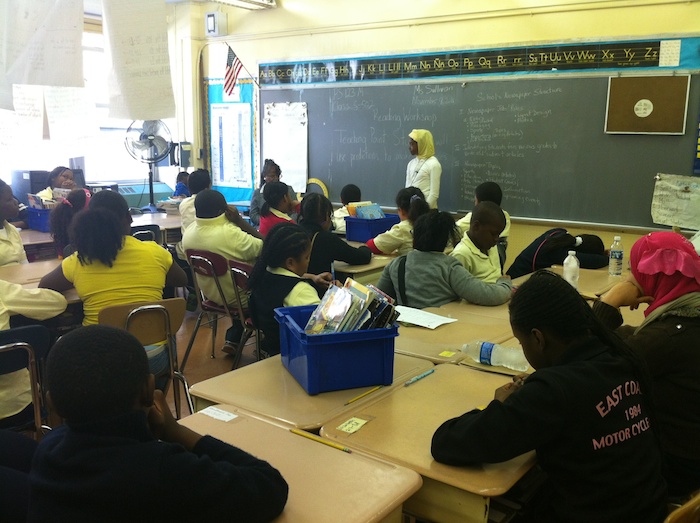
Will I end up as a mentor to any of these kids? I have no idea. In the end, you rarely know who it is you effected in a positive way. Whether or not I help one of these students is not just in what I say, but in simply showing up. In taking the time to be present in their lives, in encouraging them to push past boundaries, to imagine what they can achieve.
And of course, let me know if there is any way I can be of assistance to you. Have a great day.
-Dan

